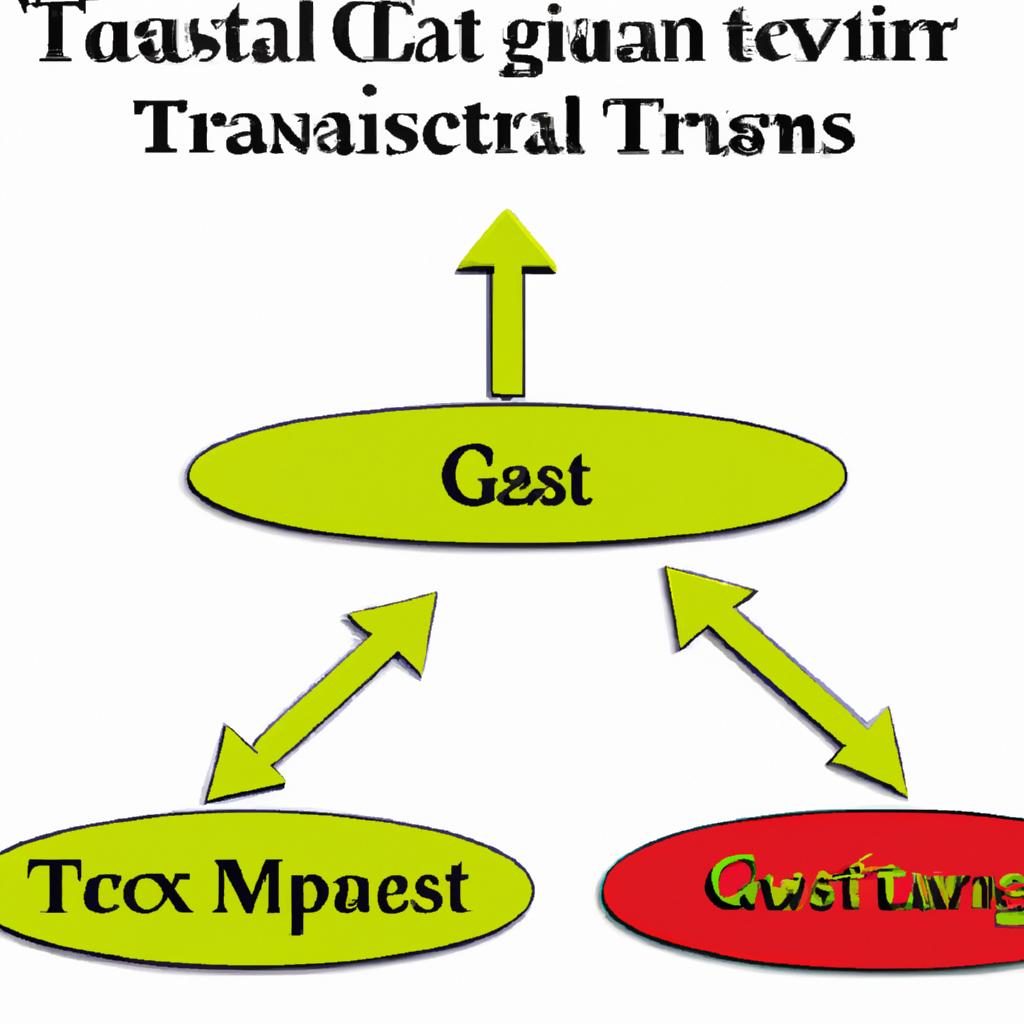In the realm of estate planning and asset protection, the interplay between trusts and tax obligations is a crucial consideration for individuals seeking to preserve and transfer their wealth. One question that frequently arises among clients is whether a trust can effectively shield assets from capital gains tax liabilities. As experienced attorneys at Morgan Legal Group in New York City, we understand the complexities and nuances of trust structures and tax implications. In this article, we delve into the intricate world of capital gains tax and explore the potential strategies through which a trust may mitigate or potentially avoid such tax burdens. Join us as we unravel the intersection of trusts and capital gains tax, shedding light on the possibilities and limitations within the realm of estate planning.
Understanding the Tax Implications of Trusts in Capital Gains
When it comes to trusts and capital gains tax, there are several important factors to consider. One of the key benefits of using a trust is the potential to avoid or minimize capital gains tax liabilities. By transferring assets into a trust, the ownership of those assets is effectively transferred to the trust itself. This can have significant tax implications, as the trust is considered a separate legal entity for tax purposes.
However, it’s important to note that not all trusts are created equal when it comes to capital gains tax. The type of trust, the nature of the assets held in the trust, and the beneficiaries of the trust can all impact the tax treatment of capital gains. Understanding the complexities of trust taxation and capital gains can be challenging, which is why it’s essential to work with experienced professionals who specialize in trust and estate planning, such as the team at Morgan Legal Group.

Strategies for Minimizing Capital Gains Tax through Trusts
When it comes to minimizing capital gains tax through trusts, there are several effective strategies that can be utilized to ensure maximum benefits. One such strategy is utilizing a charitable remainder trust, which allows individuals to donate appreciated assets to a charitable organization while deferring capital gains taxes. This enables beneficiaries to receive income from the trust over a specified period while also benefiting from a charitable tax deduction.
Another effective strategy is establishing a grantor retained annuity trust (GRAT), which allows individuals to transfer assets to a trust while retaining an annuity interest for a specified period. By doing so, individuals can potentially avoid capital gains taxes on the appreciation of assets transferred to the trust, thereby maximizing the value of the assets passed on to beneficiaries. It is important to consult with a knowledgeable estate planning attorney to determine the most suitable trust structure for minimizing capital gains tax and achieving long-term financial goals.

Exploring the Use of Grantor Trusts to Avoid Capital Gains Tax
When it comes to minimizing capital gains tax, grantor trusts can be a powerful tool in an estate planner’s arsenal. By transferring assets into a trust, individuals can potentially avoid paying capital gains tax on the appreciation of those assets. This is because the transfer of assets to a trust is not considered a taxable event, allowing the assets to grow tax-free within the trust.
One of the key benefits of using a grantor trust to avoid capital gains tax is that the trust is considered a disregarded entity for tax purposes. This means that any income or gains generated by the trust are attributed back to the grantor, who is responsible for paying the taxes on those gains. By strategically structuring the trust and its investments, individuals can effectively shift the tax burden from themselves to the trust, potentially saving a significant amount of money in capital gains taxes.

Key Considerations for Trustees in Managing Capital Gains Tax in Trusts
When it comes to managing capital gains tax in trusts, trustees must consider several key factors to ensure compliance with tax laws and maximize the benefits of the trust for its beneficiaries. One important consideration is the type of assets held within the trust, as different assets may be subject to different tax rates. Assets such as real estate, stocks, and other investments can trigger capital gains tax liability when sold or transferred, so trustees must carefully evaluate the tax implications of any transactions involving these assets.
Additionally, trustees should be aware of the various strategies available to minimize capital gains tax in trusts, such as utilizing the annual exemption allowance, choosing the right timing for asset sales, and considering the use of tax-efficient investments. By staying informed about the latest tax laws and regulations, trustees can effectively manage capital gains tax in trusts and help protect the financial interests of the trust’s beneficiaries.
Q&A
Q: Can a trust avoid capital gains tax?
A: Trusts can potentially help minimize capital gains tax liability, but they cannot entirely avoid it.
Q: How can a trust help reduce capital gains tax?
A: Trusts can allow assets to be transferred and sold in a tax-efficient manner, potentially utilizing exemptions and deductions to lower the overall tax burden.
Q: Are there any specific types of trusts that are more effective at reducing capital gains tax?
A: Certain types of trusts, such as charitable remainder trusts or grantor retained annuity trusts, may offer specific tax benefits that can help minimize capital gains tax.
Q: What are some other strategies besides using trusts to reduce capital gains tax?
A: Other strategies include timing the sale of assets, taking advantage of tax deferral opportunities, and making use of primary residence exclusions.
Q: Is it necessary to consult with a tax professional or financial advisor when considering using a trust to minimize capital gains tax?
A: Yes, it is highly recommended to seek the guidance of a tax professional or financial advisor to ensure that all options and implications are fully understood before implementing any tax-saving strategies involving trusts.
Future Outlook
In conclusion, trusts can be a valuable tool for estate planning and asset protection, but navigating the complexities of capital gains tax can be challenging. While trusts may offer some tax benefits, it is important to consult with a financial advisor or tax professional to ensure that you are maximizing your tax advantages while staying within the bounds of the law. By understanding the rules and regulations surrounding capital gains tax and trusts, you can make informed decisions that will benefit you and your loved ones in the long run. Trust wisely, plan carefully, and reap the rewards of a well-managed estate.











